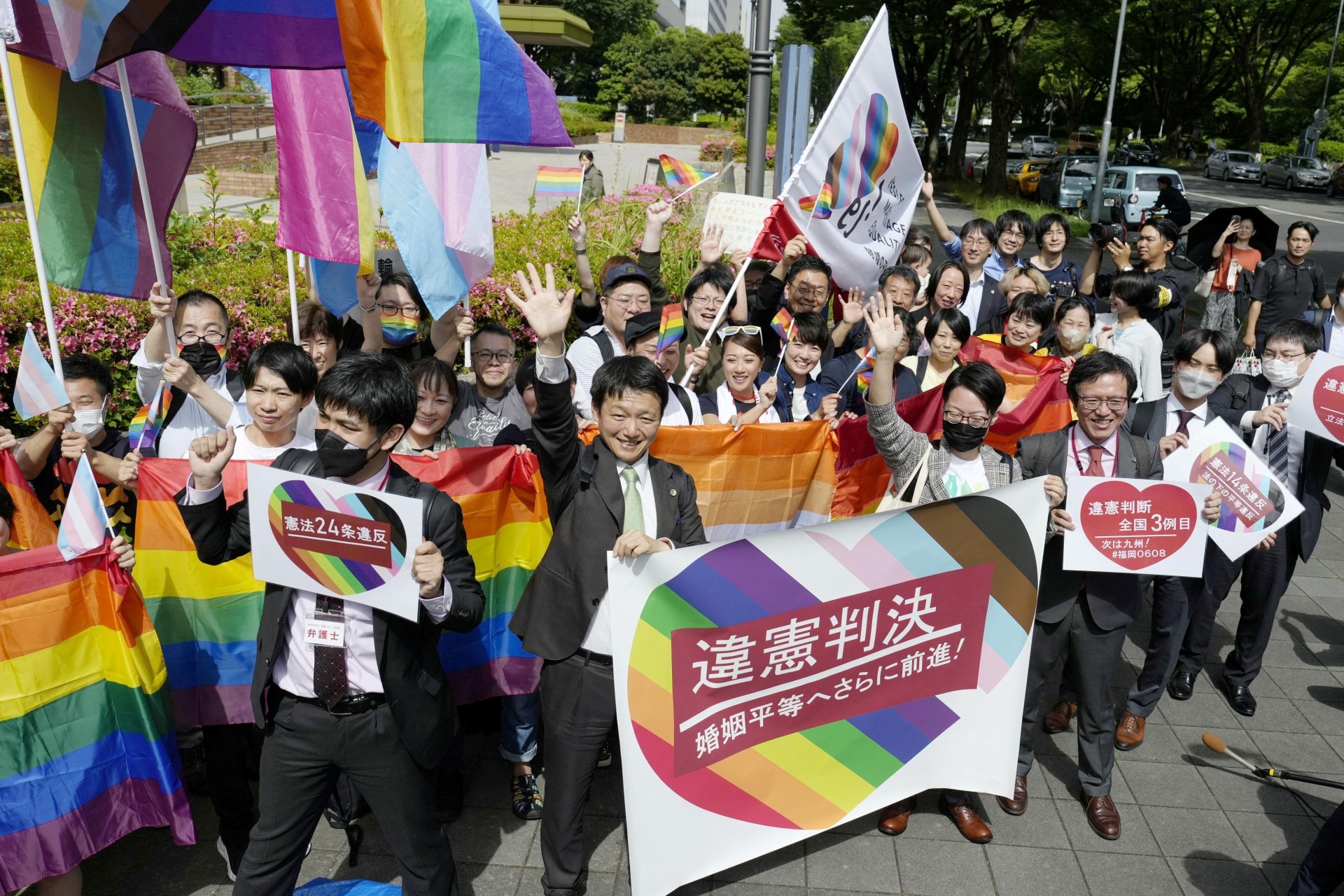Japan’s Debate Over LGBTQ+ Rights: The Diet
The courts were not the only voice influencing Japan’s LGBTQ+ rights last year.

By experts and staff
- Published
The courts were not the only voice influencing Japan’s LGBTQ+ rights last year. Because Japan hosted the G7 Summit in Hiroshima from May 19 to May 21, 2023, some ambassadors in Tokyo also weighed in on Japan’s stance on same-sex marriage. The U.S. Ambassador to Japan, Rahm Emanuel, posted a video on May 12 in which he and fourteen other ambassadors urged Japan to be more accepting of LGBTQ+ individuals. Conservatives in Japan were displeased with what they saw as foreign intervention into domestic concerns. The attention did seem to galvanize Prime Minister Kishida, who had been pushing for the approval of a bill designed to promote Public Understanding of Diversity in Sexual Orientation and Gender Identity. Kishida seemed determined to pass the bill in advance of the G7 meeting. Due to divisions within the Liberal Democratic Party (LDP), however, the bill did not pass the Diet until June 23, 2023.
One might think that the new law was in response to the events of early 2023 and the court cases discussed in our last blog. But, in fact, it was due to efforts by some in the Diet who had been quietly floating potential LGBTQ+ legislation for years. As early as 2016, LDP Policy Research Council chair Inada Tomomi created the Special Mission Committee on Sexual Orientation and Gender Identity. In 2021, a draft generated by this committee was adopted as a bill supported by a cross-party group of lawmakers, who planned to present it to the Diet for approval prior to the Tokyo Olympics, which were scheduled for that summer. However, in late May 2021, the chair of the LDP’s General Council, Satō Tsutomu, announced that the LDP withdrew its support for the bill due to opposition from social conservatives within his party.
The current bill differs from the 2021 draft in multiple ways to gain support from its LDP critics. For instance, the passage stating “discrimination on the basis of sexual orientation or self-recognition of gender identity shall not be tolerated” from the 2021 draft was replaced in the 2023 draft with “no unfair discrimination on the basis of sexual orientation or gender identity is allowed.”
A second change, less obvious to observers following this news in English, is the term used to describe those subjected to discrimination. Some had taken issue with the term used for “gender identity,” 性自認 (seijinin), and suggested replacing it with 性同一性 (seidouitsusei). These words are translated into English as “gender identity,” but there is a subtle but important nuance between them in Japanese. Seijinin has the connotation of self-determination of gender identity; similar to how gender identity is often viewed in Western countries today, it evokes the sense that one can assert their gender identity without needing outside validation. Seidouitsusei, on the other hand, is a term often used in the medical field in connection with medical transition, which in Japan can only be done after gaining the approval of a doctor. In this way, seidouitsusei has the connotation of external validation of a gender identity. The issue at the heart of this debate is the concern among some that if people can self-identify their genders, transgender individuals will be able to start claiming their identities without medically transitioning, as is currently required by law in Japan.
After those edits, the final draft which passed the Lower House to become law ended up sidestepping this language debate entirely by opting for ジェンダーアイデンティティ(jendā aidentitī), using the English term “gender identity” as a loan word, which by virtue of its foreign origins has a vaguer connotation. Thus, the law avoids the implications of validation implicit in the Japanese language.
After the initial hubbub around the legislation died down in mid-2023, discussion by the national government on LGBTQ+ issues receded. Though the bill was created to help promote public understanding of LGBTQ+ individuals and relationships, there has been no update from the Diet on guidelines for how to implement such promotion. The LDP, too, has quietly set LGBTQ+ issues to the side.
The Promotion of Understanding bill thus does little to help the cause of LGBTQ+ equality and, in fact, has the potential to do more harm than good. The banning of “unfair discrimination,” as one editorial noted, is meaningless when discrimination is, by definition, unfair. More broadly, as some LGBTQ+ advocates pointed out, a “promotion of understanding” bill centers the viewpoint of the majority population, continuing to marginalize the needs and rights of the LGBTQ+ community in favor of protecting the comfort of the average citizen. An example is the bill’s promise to “take care to ensure that all citizens can live in peace and security,” a line added at the behest of the conservative Ishin No Kai party to emphasize that the majority opinion must also be considered. Though such phrases may seem to be promoting collaboration and solidarity, in practice, they could be used by conservative interest groups to edit or veto efforts by LGBTQ+ activists to do the very thing the bill is supposed to allow: promote understanding of their community.
Despite this concern, some domestic actors and LGBTQ+ activists have seen potential in this bill. For instance, in the absence of clarity and guidelines at the national level, some civil society groups such as the LGBT Hourengou have created guidelines of their own to distribute to local governments. Going forward, it will likely be the efforts of these civil society groups and local governments to interpret the law and implement changes that will truly have an impact on LGBTQ+ acceptance in Japan.